More than 1,000 people move to Florida every day, with many of them making Orlando and Central Florida their final destination. For cities like ours, such population growth creates unique opportunities to expand job opportunities, spark industrial innovation, and build a more inclusive place to call home.
However, as a city it’s our responsibility to plan for and sustain this growth by investing in and maintaining our infrastructure. And we can’t just build more—we need to build smarter, improve residents’ quality of life, and reduce our environmental impact.
Our city knows that digital technology offers a transformative path forward—but delivering on such promise will require more than just new projects and new investments. We also must work collaboratively with other governments, the private sector, and civic institutions to deliver efficient, equitable, and sustainable growth.
All across the country, cities are looking to digital technologies to help manage growing urbanization and the risks associated with climate change. Successfully navigating these challenges will ensure that cities maintain their competitiveness and continue to represent great places to live, work, learn, and play.
In Orlando, we’ve already begun this work. Starting a decade ago, we have used Green Works Orlando to serve as a central platform to enhance the city’s long-term sustainability. It’s breadth of focus areas demonstrate how seriously we take the concept of environmental sustainability: clean energy, green buildings, multi-modal transportation, water quality, local food systems, waste innovations, and more. These efforts have received national and international recognition, including from the White House.
But we also need to continue to evolve—both as a city and through our public programming. That means exploring innovative and smarter solutions to address key social and environmental challenges of our lifetime, from stimulating a market shift toward cleaner energy to transitioning to a more accessible and environmentally-friendly public transportation system.
As a result, the city of Orlando added an exciting new initiative to Green Works called Smart ORL: a smart cities initiative that will combine our work across all departments city-wide and explore ways to use digital technologies to improve our city operations, save money, and make the city more livable for years to come.
We’re confident that well-planned, thoughtfully-deployed digital technologies can transform Orlando. Smartphone applications will connect our residents to real-time information, such as next bus arrivals or simply finding the closest open parking spot. Our city agencies can better respond to community needs, especially our police and fire departments. Improved energy meter displays will deliver energy and water usage information directly to customers.
Meeting these ambitious objectives, however, will also require cities like ours to recognize their limitations. City staff have deep expertise with direct citizen engagement and fiscal management, for example. But many cities often confront the challenge of having small or nonexistent teams of data scientists, and consistently face the reality that it’s expensive to hire more staff. The same applies to software developers to bring our objectives to a technical reality. We simply don’t have limitless technical knowledge or enough fiscal resources to execute everything we want to do.
These challenges are why so many cities—Orlando included—are forming partnerships with private and civic colleagues to expand our public sector capacity. We won a readiness challenge through the Smart Cities Council to develop a roadmap for the Smart ORL effort. To help us evaluate future projects’ economic and environmental impacts, we’re partnering with Siemens to utilize their interactive and comprehensive City Performance Tool. And we work collaboratively with the University of Central Florida to advance public works designs, and then learn about similar city-university alliances through our membership in the MetroLab network.
Effective collaboration is another reason why we work whenever we can with other governments. In January 2017, the U.S. Department of Transportation selected Orlando as one of ten proving ground cities for new vehicle technologies, including electric, connected, and autonomous vehicles. Additionally, through the development of the Central Florida Automated Vehicle Partnership (CFAVP), we joined with regional government and academic partners to create an innovation center to test smart technologies for freight, transit, automobile, bicycle, and pedestrians. It also includes NASA Kennedy Space Center roadways and a $40 million test track developed with the Florida Department of Transportation and the Florida Turnpike Enterprise.
We’re talking about a very exciting future for Orlando, but in order to accelerate this vision, we need to ensure we learn from peer cities to confirm that we make the right choices and invest in the right solutions. In addition, state and federal governments can assist us by not restricting our local abilities, and providing infrastructure funding and technical support for transportation, energy, public safety, and other smart and sustainable investments.
On top of attracting more and more new residents, Orlando also continues to serve as the country’s top tourist destination. Through the Smart ORL initiative and the support from our partners, we’re confident we can make Orlando the ‘Experimental Prototype City of the 21st century,’ a living lab and test-bed for smart and sustainable technologies that we can showcase to the 68-plus million visitors coming to our city every year.
The Brookings Institution is committed to quality, independence, and impact.
We are supported by a diverse array of funders. In line with our values and policies, each Brookings publication represents the sole views of its author(s).
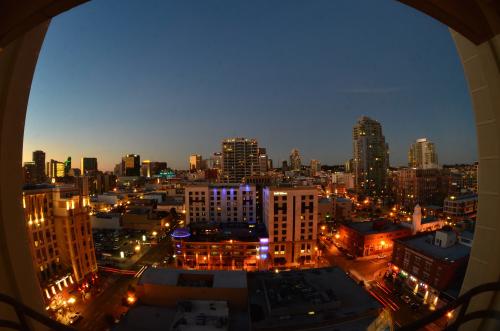
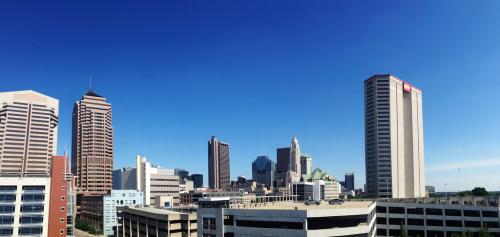
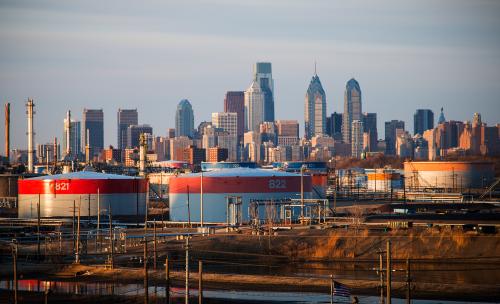
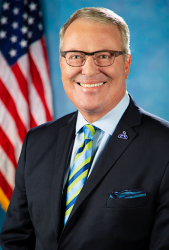


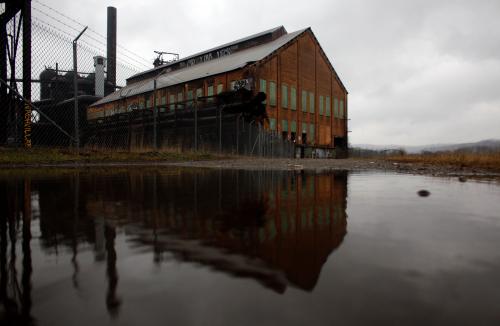
Commentary
City of Orlando advances new ‘Smart ORL’ initiative, aims to become prototype city for smart cities technologies
May 19, 2017